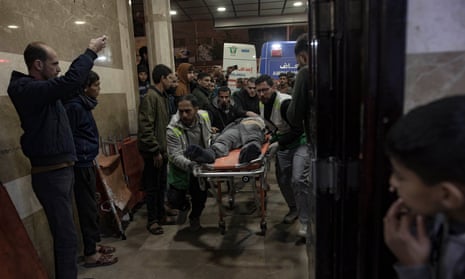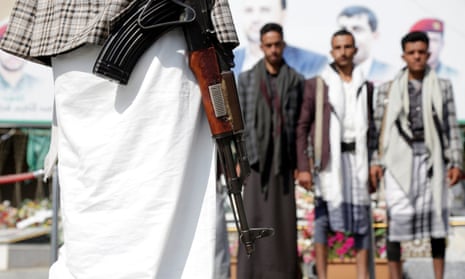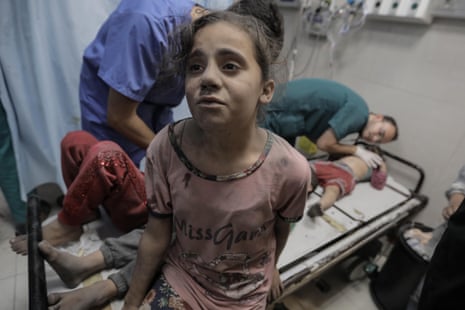Pakistan will hold emergency security meeting after trading strikes with Iran
Pakistan’s prime minister will hold an emergency security meeting on Friday with military and intelligence chiefs after trading deadly airstrikes with Iran on militant targets this week, reports Agence France-Presse (AFP).
“The prime minister has summoned a meeting of the national security committee set to take place today,” a spokesperson in his office told AFP. An Islamabad security official said the chief of army staff and head of the intelligence services will attend the mid-afternoon meeting.
Iran carried out a missile and drone attack on what it called “terrorist” targets in Pakistan on Tuesday night, with Pakistan in turn striking militant targets inside Iran on Thursday.
The rare military actions in the porous border region of Balochistan – shared between the two countries – have further stoked regional tensions already enflamed by the Israel-Hamas war.
Pakistan has recalled its ambassador from Tehran and said Iran’s envoy – on a visit home – is blocked from returning to Islamabad.
The UN and the US have appealed for restraint, while China has offered to mediate.
Key events
Israeli shelling has killed two people in the Abasan area of Khan Younis, bringing the total number killed in the city to 10 since last night, reports Al Jazeera.
Earlier, the news organisation said Israeli forces were continuing to shell Khan Younis while bringing in reinforcements to the area. According to Al Jazeera, the death toll from last night’s strike on a home in western Khan Younis has risen to eight.
It states that the death toll from an Israeli airstrike that hit an apartment block near the Gaza City health facility has now reached 15. Another strike in the northern city’s Sabra neighbourhood had also injured several civilians, Al Jazeera said citing the Palestinian news agency Wafa.
The Gaza Strip is the ‘most dangerous place in the world to be a child’, says Unicef
Unicef described the Gaza Strip as “the most dangerous place in the world to be a child” in a statement released after a visit to the area by its deputy executive director Ted Chaiban.
Chaiban has just finished a three-day visit to the Gaza Strip where he was able to coordinate with local and international organisations about the emergency response and take stock of humanitarian operations since the last time he was there two months ago. In the statement, published on Unicef’s website, Chaiban said he met with “children and their families suffering some of the most horrific conditions I have ever seen”.
He writes: “Since my last visit, the situation has gone from catastrophic to near collapse. Unicef has described the Gaza Strip as the most dangerous place in the world to be a child. We have said this is a war on children. But these truths do not seem to be getting through.”
Of the nearly 25,000 people reported to have been killed in the Gaza Strip since the escalation in hostilities, up to 70% are reported to be women and children, he said. “The killing of children must cease immediately.”
In the statement, Chaiban recalled meeting wounded children, such as 13-year-old Ibrahim who had undergone an arm amputation without anaesthetic after developing gangrene because of a lack of medicine for his infected and damaged hand. He was in “a designated shelter with his family, in an area they were told was safe, when everything collapsed around them” described Chaiban.
Chaiban continued: “The sheer mass of civilians on the border is hard to fathom and the conditions they live in are inhumane. Water is scarce and poor sanitation is inescapable. The cold and rain this week created rivers of waste. The little food that is available doesn’t meet children’s unique nutritional needs. As a result, thousands of children are malnourished and sick.
Cases of diarrhoea were up 40% from two months ago, before the escalation in hostilities, said Chaiban, adding that by mid-December, 71,000 cases were recorded among children under five, a more than 4000% increase since the war began.
“This is nothing short of a staggering decline in conditions for the children of Gaza. If this decline persists, we could see deaths due to indiscriminate conflict compounded by deaths due to disease and hunger. We need a major breakthrough,” he said. Chaiban has called to an end to the “intense bombardment”, which is not only killing thousands of people, but also impeding the delivery of aid he said.
“Before the conflict more than 500 trucks entered the Gaza Strip every day. When I was there in November, about 60 aid trucks a day entered. Now, it is about 130 trucks a day alongside an average of 30 commercial trucks a day. This is with the opening of a second crossing point but it still remains wholly inadequate. We are trying to drip assistance through a straw to meet an ocean of need,” said Chaiban.
“UNICEF has described the Gaza Strip as the most dangerous place in the world to be a child. We have said this is a war on children. But these truths do not seem to be getting through.”
Deputy Executive Director @TedChaiban following his visit to Gaza. Read full statement:…
— UNICEF (@UNICEF) January 18, 2024
He called for access restrictions to be lifted, reliable ground communications ensured, and movement of humanitarian supplies facilitated to ensure those who have been without aid for days receive desperately needed assistance. “We have to get commercial traffic flowing in Gaza, so that markets can reopen and families can be less dependent on relief,” added Chaiban.
“Finally, we need access to the north,” he said. “The estimated 250,000 to 300,000 people living in north Gaza have no access to clean water and barely any food. In the first two weeks of January, only seven of 29 planned aid deliveries have successfully reached their destinations in northern Gaza. Not a single Unicef convoy has accessed the north of the Gaza Strip in 2024.”
He concluded: “We cannot wait any longer for a humanitarian ceasefire to end the daily killing and injuring of children and their families, enable the urgent delivery of desperately needed aid and the safe and unconditional release of the two remaining Israeli children still held hostage in Gaza. This cannot go on.”
Some cruise operators have cancelled or adjusted their itineraries to avoid the Red Sea due to attacks on ships by Houthi militia, reports Reuters.
Royal Caribbean said in a statement on Thursday it had cancelled two voyages so far: one from Muscat to Dubai at the end of January and another from Dubai to Mumbai scheduled for a month from 26 January.
Last week, it also amended the itinerary of a cruise between Aqaba and Muscat to disembark guests in a port city near Athens. “Our global security team continues to closely monitor the situation in the region and we will make additional changes if required,” Royal Caribbean said.
Swiss-Italian operator MSC Cruises said on Wednesday it had cancelled three trips in April from South Africa and the United Arab Emirates to Europe due to the Red Sea crisis. The cruise operator said as there was “no viable alternative itinerary”, they had had to cancel the voyages: “The three ships will transfer directly to Europe without any passengers on board and avoid transiting through the Red Sea.”
Although thousands of passengers are affected, the impact on cruise operators at a global level is not expected to be significant, said Todd Elliott, CEO of Florida-based travel agency Cruise Vacation Outlet: “This is a small part of their overall fleet and multi-year itineraries so they will be able to overcome this easily.”
Only a ceasefire deal can bring hostages home, says member of Israel’s war cabinet
Only a ceasefire deal can win the release of dozens of hostages held by Hamas in Gaza and that those claiming they can be freed through military pressure are spreading illusions, says a member of Israel’s war cabinet reports AP.
Former army chief Gadi Eisenkot, whose son was killed several weeks before while fighting in Gaza, told the investigative programme Uvda, broadcast on Israel’s Channel 12 television station late on Thursday, that “the hostages will only return alive if there is a deal, linked to a significant pause in fighting.”
According to AP’s report, Eisenkot said dramatic rescue operations are unlikely because the hostages are apparently spread out, many of them in underground tunnels. Claiming hostages can be freed by means other than a deal “is to spread illusions” he said.
Netanyahu and his defence minister, Yoav Gallant, have said the fighting will continue until Hamas is crushed, and argued that only military action can win the release of the hostages.
In a thinly veiled criticism of Netanyahu, Eisenkot also said strategic decisions about the direction of the war, now in its fourth month, must be made urgently, and that a discussion about an endgame should have begun immediately after fighting started on 7 October in response to the deadly Hamas attack on southern Israel.
There can be ‘no security and stability’ without a Palestinian state, says the president’s spokesperson
There can be “no security and stability in the region” without a Palestinian state, said the spokesperson for Palestinian president Mahmoud Abbas, reports Associated Press.
The remarks come in response to Israeli prime minister Benjamin Netanyahu’s rejection on Thursday of calls by the US to take steps toward the establishment of a Palestinian state after the war.
“Without the establishment of an independent Palestinian state with East Jerusalem as its capital on the borders of 1967, there will be no security and stability in the region,” Palestinian state news agency Wafa quoted Abbas’ spokesperson Nabil Abu Rdeineh as saying on Thursday.
Israeli gunboats shelling northern Gaza coast
Israeli gunboats are hitting coastal areas of Gaza City which has also been the site of heavy airstrikes, reports Al Jazeera.
At least 12 people have been killed and several have been injured from a strike that hit a residence near the city’s al-Shifa hospital, the news organisation added. Al Jazeera is one of the few news organisations with a functioning bureau in Gaza.
Elsewhere, reporting from Tulkarem refugee camp in the West Bank, Al Jazeera’s reporter Hoda Abdel-Hamid, said the “mood is one of anger”. Israeli bulldozers had dug up the roads at the entrance to the camp, she said. “The raid lasted nearly 40 hours, one of the longest we have seen in the occupied West Bank since 7 October,” she added.
Abdel-Hamid reported that a large number of people were detained and some were released after being interrogated. She says the anger comes from the destruction of businesses, shops and houses.
Abdel-Hamid writes: “Many Palestinians believe the destructive raids are happening more and more often because Israel wants to make life in the camps very difficult so that they will leave. There is a strong belief that Israel wants to push Palestinians off their land, to push them all the way to Jordan if possible.”
Pakistan will hold emergency security meeting after trading strikes with Iran
Pakistan’s prime minister will hold an emergency security meeting on Friday with military and intelligence chiefs after trading deadly airstrikes with Iran on militant targets this week, reports Agence France-Presse (AFP).
“The prime minister has summoned a meeting of the national security committee set to take place today,” a spokesperson in his office told AFP. An Islamabad security official said the chief of army staff and head of the intelligence services will attend the mid-afternoon meeting.
Iran carried out a missile and drone attack on what it called “terrorist” targets in Pakistan on Tuesday night, with Pakistan in turn striking militant targets inside Iran on Thursday.
The rare military actions in the porous border region of Balochistan – shared between the two countries – have further stoked regional tensions already enflamed by the Israel-Hamas war.
Pakistan has recalled its ambassador from Tehran and said Iran’s envoy – on a visit home – is blocked from returning to Islamabad.
The UN and the US have appealed for restraint, while China has offered to mediate.
Airstrike targets a house in northern Rafah
An airstrike targeted a house in northern Rafah, says Al Jazeera journalist, Hani Mahmoud who is reporting from the location in southern Gaza. He said it happened less than an hour ago.
“Due to network outage, we are unable to get an exact number of casualties, but many with severe injuries are reported to be admitted to el-Najjar hospital,” he wrote.
Mahmoud also reports that overnight airstrikes and heavy bombardment in Khan Younis killed five people as Israeli military tanks and army vehicles pushed deeper into the vicinity of Nasser hospital and the Jordanian field hospital.
“The Israeli military, along with its tanks and armoured vehicles and invading forces, haven’t left the area. They are causing a wave of panic among people sheltering inside Nasser hospital,” he writes.
The IDF appeared to confirm reports that its soldiers dug up graves in a Gaza cemetery, explaining that it took the action in order to verify that the bodies of hostages were not buried there, reports the Times of Israel.
Responding to a query from US outlet NBC, the IDF said in a statement that it is “committed to fulfilling its urgent mission to rescue the hostages and find and return the bodies of hostages that are held in Gaza”.
The statement continues: “When critical intelligence or operational information is received, the IDF conducts precise hostage rescue operations in the specific locations where information indicates that the bodies of hostages may be located.
“The hostage identification process, conducted at a secure and alternative location, ensures optimal professional conditions and respect for the deceased. Bodies determined not to be those of hostages are returned with dignity and respect.
“If not for Hamas’s reprehensible decision to take Israeli men, women, children and babies as hostages, the need for such searches … would not exist.”
However, Al Jazeera reports that various cemeteries in Gaza have been documented to have been dug up by the Israeli army, with Palestinian bodies left on the dug-up soil after soldiers leave.
The World Health Organisation (WHO) said overnight it had counted 24 cases of hepatitis A and “thousands” of cases of jaundice likely linked to the spread of the viral liver infection in Gaza.
“The inhumane living conditions – barely any clean water, clean toilets and possibility to keep the surroundings clean – will allow hepatitis A to spread further,” the WHO chief, Tedros Adhanom Ghebreyesus, said on X.
Describing the health crisis in the Palestinian territory as “explosive”, he also said:
The capacity to diagnose diseases remains extremely limited. There is no functioning laboratory. The capacity to respond remains limited too.
Cases of #HepatitisA, an inflammation of the liver, have been confirmed in #Gaza via test kits supplied by @WHO.
Hepatitis A is usually mild but can occasionally cause severe disease. 24 cases are confirmed and no deaths have been reported so far. There are several thousand…
— Tedros Adhanom Ghebreyesus (@DrTedros) January 18, 2024
The UN says the war has displaced about 85% of Gaza’s 2.4 million people, Agence France-Presse reports, and many are crowded into shelters where they struggle to get food, water, fuel and medical care.
UN agencies say improved access to aid is needed urgently as famine and disease loom.
Israeli forces have advanced further into southern Gaza’s main city, pounding areas near the territory’s biggest functioning hospital and sparking fears it could be forced to close due to Israeli bombardments and evacuation orders.
Helen Livingstone and news agencies report that Khan Younis residents and medical staff said the fighting had come within metres of Nasser hospital, the biggest hospital still partially working in Gaza, over the past week.
It has been receiving hundreds of wounded patients a day since the fighting shifted to the south last month.
Israeli officials have accused Hamas fighters of operating from Nasser hospital, which staff deny.

Two-thirds of Gaza’s hospitals have ceased functioning and losing Nasser would further curtail the limited trauma care still available. Two other hospitals – al-Aqsa and the Gaza European – are also at risk of closure, according to the UN.
On Thursday, Hamas denied claims aired by the released Israeli hostage Sharon Aloni in an interview on CNN that she and other prisoners had been detained in rooms in Nasser hospital.
The aid agency Médecins Sans Frontières said heavy bombing by Israeli forces in recent days had sparked “panic among patients and displaced people seeking refuge there”.
The full report is here:

Dan Sabbagh
The latest round of US bombing against Houthi targets in Yemen comes as little surprise, and raises with it the prospect of an extended military campaign affecting a nation already impoverished by years of war.
The assault implies an effective recognition by Washington that any effort to try to completely halt the attacks on western shipping in the southern Red Sea will require repeated intervention because of the Yemeni group’s capacity and determination to resist.
The movement’s leader, Abdul-Malik al-Houthi, said on Thursday in his first speech since the US-led intervention that it was “a great honour” to be in direct confrontation with the Israelis, Americans and British, characterising it as part of Houthi attempts to intervene in support of Palestinians in Gaza – a moral cause from which it will be politically difficult to back down.
In narrow military terms it is not a fair fight, although asymmetric conflicts are nothing new. The problem is that the US and their allies have the capacity to keep bombing Houthi targets in Yemen for a long time, while the Houthis still retain the ability to close the southern Red Sea to merchant shipping, and so impose economic costs on the west.
See more of this analysis here:
Houthis promise safe passage for Russian and Chinese ships
A senior Houthi official has promised safe passage for Russian and Chinese vessels through the Red Sea, where the Iran-backed Yemeni militant group has been carrying out attacks on commercial ships in solidarity with Palestinians in Gaza.
In an interview published by Russian outlet Izvestia on Friday, Mohammed al-Bukhaiti insisted the waters around Yemen – which some shipping firms are avoiding due to the ongoing aggression – were safe so long as vessels were not linked to certain countries, particularly Israel, Agence France-Presse reports.
The Houthi official said:
As for all other countries, including Russia and China, their shipping in the region is not threatened.
Moreover, we are ready to ensure the safe passage of their ships in the Red Sea, because free navigation plays a significant role for our country.
Attacks on vessels “in any way connected with Israel” would continue, he added.

The Iran-backed militants have recently said US- and British-linked ships were also fair game after the two countries launched airstrikes in Yemen in response to the repeated attacks.
The Houthis insist their attacks only target vessels of certain nationalities, but a US Navy commander has said the ships involved actually have ties to dozens of countries.
The Houthis early on Friday claimed another attack on a US ship after the US launched fresh strikes on militant targets the day before.
In Friday’s interview, Bukhaiti said the blame for the shipping attacks rested with the vessels that ignored Houthi orders to change course.
Our goal is to raise the economic costs for the Jewish state in order to stop the carnage in Gaza.
Opening summary
Welcome to the Guardian’s live coverage of the Middle East crisis. I’m Adam Fulton and here’s a rundown on the latest news.
A senior Houthi official has promised safe passage for Russian and Chinese vessels through the Red Sea, where the Iran-backed Yemeni militant group has been attacking commercial ships.
Mohammed al-Bukhaiti insisted the waters around Yemen were safe so long as vessels were not linked to certain countries, particularly Israel.
“As for all other countries, including Russia and China, their shipping in the region is not threatened,” he said in an interview published by Russian outlet Izvestia. “Moreover, we are ready to ensure the safe passage of their ships in the Red Sea, because free navigation plays a significant role for our country.”
Attacks on vessels “in any way connected with Israel” would continue, he added.
While the Houthis insist their attacks only target vessels of certain nationalities, a US Navy commander has said the ships involved actually have ties to dozens of countries.
More on that story soon. In other developments as it turns 8.40am in the Yemeni capital, Sanaa, and 7.40am in Gaza City and Tel Aviv:
-
The US has carried out a fifth strike against Houthi targets in Yemen, even as Joe Biden acknowledged that bombing the militants has yet to stop their attacks on shipping in the Red Sea. Late on Thursday US warplanes targeted anti-ship missiles that “were aimed into the southern Red Sea and prepared to launch”, according to US Central Command. The US president told reporters: “When you say working, are they stopping the Houthis? No. Are they going to continue? Yes.”
-
Also on Thursday night, Houthis fired missiles at a US-owned tanker ship in the Gulf of Aden. The White House and the Houthis gave differing accounts of the launches at the Chem Ranger, with the militants saying their naval forces had attacked “with several appropriate naval missiles, resulting in direct hits”. However, US Central Command said the Houthis launched two anti-ship ballistic missiles and that they hit the water near the ship, causing no damage or injuries. It said it was the third Houthi strike on a commercial shipping vessel in three days.

-
A total of 24,620 Palestinians have been killed and 61,830 have been injured in Israeli strikes on Gaza since 7 October, according to the latest figures by the territory’s Hamas-run health ministry on Thursday. The figures include 172 killed and 326 injured in the past 24 hours. At least 16 people were reported killed by an Israeli airstrike on a house in Rafah, southern Gaza.
-
A new wave of violence has swept the West Bank, with a series of major raids launched by the Israeli military across much of the occupied territory. Israeli forces remained in Tulkarem, in the West Bank’s north, for a second day on Thursday after launching a raid on a refugee camp there. Eight people were killed on Thursday, the Israeli military said.
-
Israel’s prime minister, Benjamin Netanyahu, has told the White House that he rejects any moves to establish a Palestinian state when Israel ends its offensive against Gaza, and that all territory west of the Jordan River would be under Israeli security control. His public statement on Thursday represented his sharpest rebuttal of US foreign policy. The White House responded by saying the US would continue working towards a two-state solution and that there could be no Israeli reoccupation of Gaza when the war concluded.
-
Pakistan has launched retaliatory strikes against militants in Iran in response to attacks by Tehran that targeted sites within Pakistan’s borders, heightening fears of further instability across the Middle East and surrounding region. Ten people from one family were killed in the attacks, including six children, reportedly all “non Iranian nationals”.
-
Children in Gaza are suffering from “horrific conditions” and the Palestinian territory remains the most dangerous place in the world to be a child, the deputy chief of the UN children’s agency says. Ted Chaiban said at the end of a three-day visit to Gaza that since his last visit two months ago “the situation has gone from catastrophe to near collapse”. If the staggering decline in conditions persisted, “we could see deaths due to indiscriminate conflict compounded by deaths due to disease and hunger”, he said.

-
A communications blackout in Gaza entered a seventh day on Thursday, hindering rescue and relief efforts.
-
There was no word on Thursday on whether medicines that entered Gaza as part of a deal brokered by France and Qatar had been distributed to dozens of hostages with chronic illnesses who are being held by Hamas. Qatar confirmed late on Wednesday that the medicine had entered Gaza, but it was not yet clear if it had been distributed to the hostages, who are being held in secret locations.
-
The EU is set to adopt sanctions against Hamas on Monday that will “target individuals and ban money transfers”, according to the French foreign ministry. EU foreign ministers were also expected to discuss possible measures against violent Israeli settlers, a ministry spokesperson said. Meanwhile, the European parliament has voted to call for a “permanent ceasefire” in the Gaza Strip, but on condition that all Israeli hostages held in the territory are released and Hamas dismantled. The resolution on Thursday, which is non-binding, stopped short of calling for an unconditional ceasefire in Gaza.
-
Mexico and Chile have asked the international criminal court (ICC) to investigate possible crimes against civilians in Gaza. In a statement, Mexico’s foreign ministry said the action “is due to growing worry over the latest escalation of violence, particularly against civilian targets”. Any proceedings by the ICC would be separate from South Africa’s case accusing Israel of genocide at the UN’s international court of justice.
-
An airstrike on southern Syria early on Thursday killed at least nine people and was probably carried out by Jordan’s air force, Syrian opposition activists said, over the latest in a series of strikes in an area where cross-border drug smugglers have been active. There was no immediate confirmation from Jordan on the strike that hit the province of Sweida, and there was some confusion over the number of people killed.
-
Israel has joined a notorious band of authoritarian states with a history of imprisoning journalists by detaining Palestinian reporters without trial since the beginning of the latest war in Gaza. A report by the Committee to Protect Journalists released on Thursday said that for the first time, Israel figures in its list of “worst jailers of journalists”, putting it on a par with Iran.



